
Biomedical, data science training wins new grant
The Rice University NLM Training Program in Biomedical Informatics and Data Science wins a $4.16 million National Library of Medicine grant.

Biomedical, data science training wins new grant
The Rice University NLM Training Program in Biomedical Informatics and Data Science wins a $4.16 million National Library of Medicine grant.
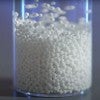
‘Drug factory’ implants eliminate mesothelioma tumors in mice
Rice and Baylor researchers have used Rice’s “drug factory” implants to eradicate advanced-stage mesothelioma tumors in mice.

Overcoming political and production problems carries national security implications according to the paper, “U.S. Needs LNG to Fight a Two-Front Gas War.”

Former Houston Texans president Jamey Rootes joins Rice’s Department of Sport Management
Jamey Rootes, former president of the Houston Texans, has joined Rice University’s Department of Sport Management and will head the newly created Hutchinson Leadership Initiative in Sport Analytics.

Rice, NASA extend Space Act Agreement
Rice and NASA extend their pact to share research and outreach through a Space Act Agreement.
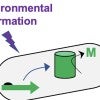
Rice team eyes cells for sophisticated data storage
Rice University receives National Science Foundation support to turn living cells, starting with bacteria, into random-access memory devices. These will be able to store and report data about their environments.
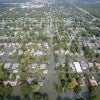
Rice experts available to discuss 5th anniversary of Harvey
As the fifth anniversary of Hurricane Harvey approaches, Rice University experts are available to discuss the storm’s ongoing impact.
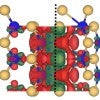
2D boundaries could create electricity
Rice engineers lead study to create piezoelectricity in two-dimensional phase boundaries. They could power future nanoelectronics like sensors and actuators.

OpenStax, Rice University’s educational technology initiative that provides students and instructors with free learning resources, will publish the 10th edition of Cornell University professor emeritus John McMurry’s bestselling organic chemistry textbook next year.

An Aug. 17 webinar from Rice University’s Baker Institute for Public Policy — the first in a three-part series on health policy and how it will impact this year’s midterm elections — will examine what policymakers can do to destigmatize mental illness and improve access to care.

Remembering Larry Rachleff, beloved conductor of Rice’s symphony and chamber orchestras
Larry Rachleff, the longtime conductor of the Rice Shepherd School of Music symphony and chamber orchestras who was renowned throughout the classical music world for his deep musical understanding, powerful interpretation of scores and rapport with performance ensembles, died Aug. 8 after a long battle with non-Hodgkin's lymphoma. He was 67.
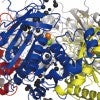
Rice models moving ‘washers’ that help DNA replicate
Rice researchers model a key mechanism by which DNA replicates. The study could help identify new targets to treat disease.
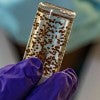
Rice, Baylor developing implants to heal heart attack injuries
Rice and Baylor College of Medicine are creating tiny implants that can heal damage from heart attacks.

Halas, Nordlander win prestigious Eni Energy Transition Award
Rice’s Naomi Halas and Peter Nordlander have won the prestigious 2022 Eni Energy Transition Award.

Reversing decline in college enrollment hinges on labor market, says Baker Institute expert
When and if enrollment levels rebound depends mainly on the strength of the labor market, which hinges on the economy’s response to Federal Reserve interest rate hikes designed to combat inflation, argues Joyce Beebe, fellow in public finance at Rice University’s Baker Institute for Public Policy, in a recent blog post.